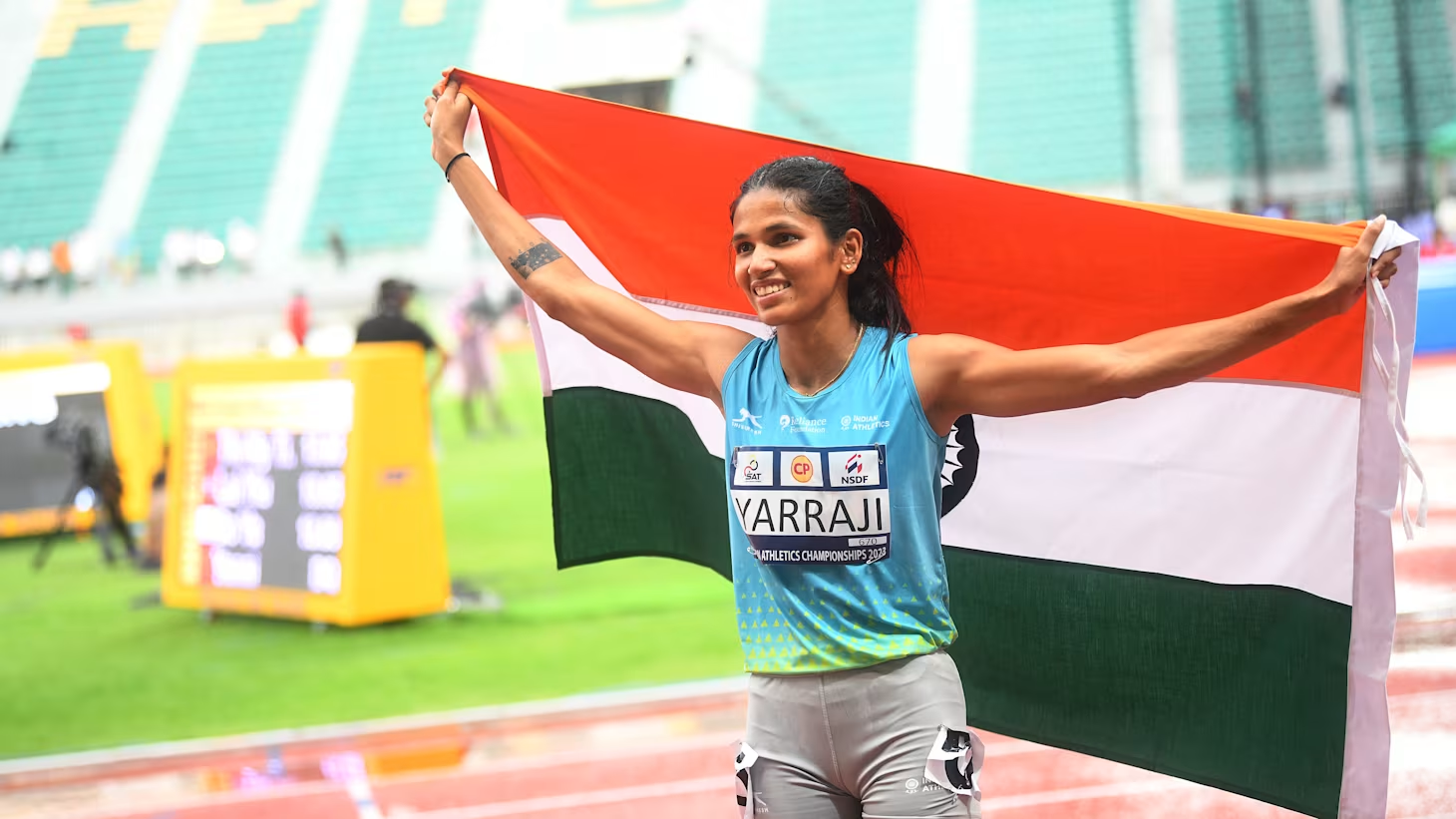The LA 2028 Olympic Games will mark the most dramatic restructuring of the athletics schedule in modern Olympic history.
For the first time, track and field will run across the entire duration of the Games, beginning on July 15 and concluding on July 30. This bold reimagining, announced jointly by World Athletics (WA) and the LA28 Organising Committee, repositions athletics at the very heart of the Olympic narrative an intentional move to maximise global visibility, fan engagement, and media impact.
The shift is not merely cosmetic. It represents a structural overhaul that touches every level of competition from the most-watched sprints to the gruelling middle-distance events.
At the core are three strategic innovations: the repositioning of athletics into Week 1, the unprecedented compression of the women’s 100m, and the expansion of the repechage system with mandated recovery windows. Collectively, these changes represent the Olympics’ most ambitious attempt yet to blend tradition, athlete welfare, broadcast optimisation, and gender parity.
The Schedule Flip: Why Athletics Takes Week 1
One of the headline changes for LA 2028 is the reversal of the traditional Olympic placement of swimming and athletics. Historically, aquatics has opened the Games, with athletics anchoring Week 2. LA 2028 flips this model.
The primary reason is logistical necessity. SoFi Stadium host of the unique two-stadium Opening Ceremony is also slated to become an Olympic swimming venue. Converting the NFL arena into the largest natatorium ever built, capable of hosting 38,000 spectators, requires significant time. With the Opening Ceremony scheduled on July 14, the venue simply cannot be prepared for swimming by the next morning.

Shifting swimming to Week 2 provides the time needed for this massive conversion. And while logistics triggered the swap, World Athletics quickly recognized the strategic upside: by staging athletics in Week 1, the sport will now capitalise on the global surge in viewership immediately after the Opening Ceremony.
The LA Memorial Coliseum an iconic venue that becomes the first stadium to host Olympic athletics across three editions (1932, 1984, 2028) will stage competition from July 15–24, before the program transitions to road events in the closing days. The men’s marathon will once again serve as the traditional final event.
Opening with a Bang: Women’s 100m in One Day
Perhaps the single most provocative decision in the LA 2028 schedule is the compression of all rounds of the women’s 100m prelims, heats, semi-finals, and final into Day 1. This is the first time any Olympic sprint event will be run in full on a single day.
The move is framed as a bold gender-parity statement. LA28 aims to deliver the most gender-balanced Games ever, with 50.5% female representation and equal or greater numbers of women’s teams in every sport. Placing the women’s 100m final as the marquee event of Day 1 symbolically positions the world’s fastest women as the opening-day headliners. Sprinters, including global star Sha’Carri Richardson, have endorsed the plan, confident that with a multi-year preparation window, they can condition for the demands of three high-intensity races in one day.
Read Articles Without Ads On Your IndiaSportsHub App. Download Now And Stay Updated
Yet, this format raises legitimate performance and welfare questions. The 100m relies on the ATP-PC anaerobic system, and although this energy system regenerates quickly, repeated maximal efforts within hours can trigger neuromuscular fatigue and elevate injury risk especially to the hamstrings. Critics also question the fairness of compressing the women’s event while the men’s 100m retains the traditional two-day format.
If the single-day model is optimal for spectacle, why not apply it universally?
This structural disparity between the men’s and women’s programme is likely to be one of the most debated aspects of the LA 2028 schedule.
Repechage Returns: More Races, More Strategy
The LA 2028 schedule expands the repechage system first introduced in Paris 2024 to all sprint and middle-distance events from 200m to 1500m (excluding the 100m). Every athlete is now guaranteed at least two races.
The repechage era introduces new physiological and tactical dimensions:
36 Hours Recovery for 400m Events
The 400m and 400m hurdles will have a protected 36-hour gap between Round 1 and the repechage. This is rooted in evidence that 36 hours is optimal for neuromuscular restoration following maximal efforts. Athletes who take the repechage path will not be excessively penalised in terms of recovery.
24 Hours for 800m and 1500m: A Brutal Challenge
Middle-distance runners face a tougher reality. The 24-hour gap between Round 1 and the repechage is exceptionally tight for events requiring deep metabolic recovery. Athletes pushed into the repechage will enter the semi-finals with a clear physiological disadvantage, making automatic qualification in Round 1 even more valuable.
The Double Dilemma: What’s Possible, What’s Not
The LA 2028 schedule is explicitly designed to enable high-profile “double” attempts echoes of Carl Lewis’ multi-event heroics in 1984. Many combinations have been made feasible:
- 100m–200m
- 200m–400m
- 800m–1500m
- 5000m–10,000m
- Long Jump–Triple Jump
However, one major clash stands out: the women’s 400m and 400m hurdles. The 400m flat final and 400m hurdles semi-final overlap, essentially preventing Sydney McLaughlin-Levrone from attempting the historic double many fans hoped to see.
Balancing Innovation and Athlete Welfare
The LA 2028 athletics schedule marks a new era. It is ambitious, strategically forward, media-savvy and undeniably controversial. Its success will depend not only on how many world records are broken, but on how well World Athletics sustains competitive integrity, athlete health, and gender fairness under this new paradigm.
What unfolds in Los Angeles will shape how future hosts from Brisbane 2032 onwards design the Olympic athletics programme. LA has set the stage for a new model. The world now waits to see if the athletes can thrive within it.
How useful was this post?
Click on a star to rate it!
Average rating 0 / 5. Vote count: 0
No votes so far! Be the first to rate this post.





